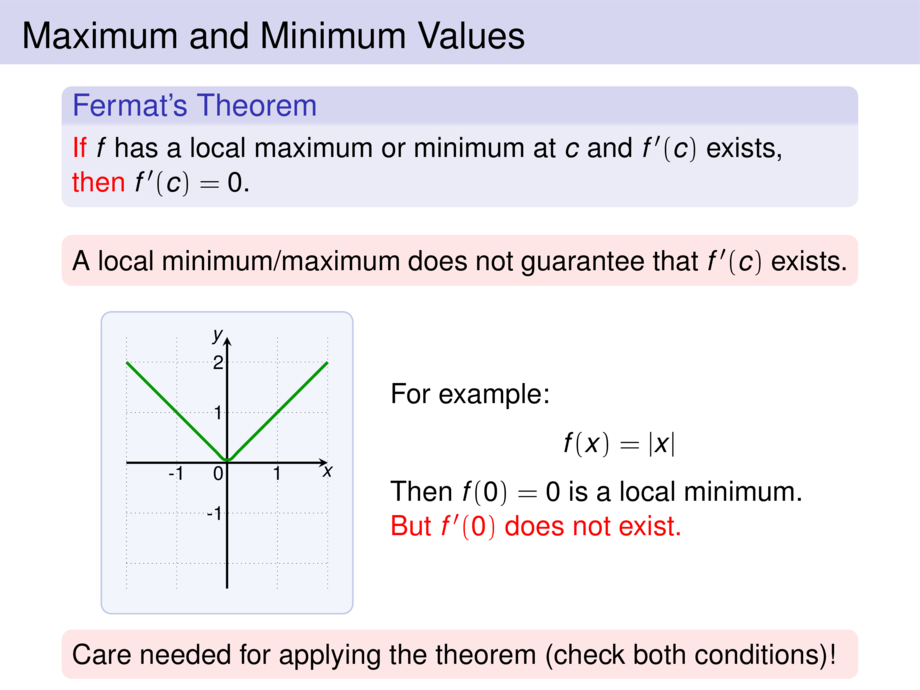



































































































104/209
\begin{frame}
\frametitle{Maximum and Minimum Values}
\begin{block}{Fermat's Theorem}
\alert{If} $f$ has a local maximum or minimum at $c$ and $f'(c)$ exists, \\
\alert{then} $f'(c) = 0$.
\end{block}
\pause\medskip
\begin{alertblock}{}
A local minimum/maximum does not guarantee that $f'(c)$ exists.
\end{alertblock}
\pause\bigskip
\begin{minipage}{.4\textwidth}
\begin{center}
\scalebox{.7}{
\begin{tikzpicture}[default,baseline=1cm]
\diagram{-2}{2}{-2.5}{2.5}{1}
\diagramannotatey{-1,1,2}
\diagramannotatex{-1,1}
\diagramannotatez
\begin{scope}[cgreen,ultra thick]
\draw plot[smooth,domain=-2:2,samples=30] function{abs(x)};
\end{scope}
\end{tikzpicture}
}
\end{center}
\end{minipage}
\begin{minipage}{.59\textwidth}
For example:
\begin{talign}
f(x) = |x|
\end{talign}
\pause
Then $f(0) = 0$ is a local minimum.\\
\pause
\alert{But $f'(0)$ does not exist.}
\end{minipage}
\pause
\begin{alertblock}{}
Care needed for applying the theorem (check both conditions)!
\end{alertblock}
\vspace{10cm}
\end{frame}

